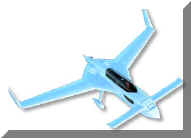 |
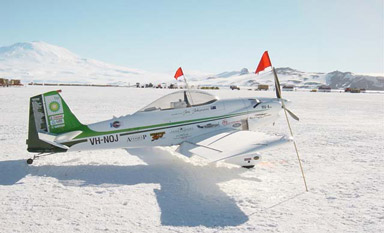 |
| LSE Vari EZE
|
Jon
Johanson's RV |
LIGHT SPEED ENGINEERING'S
ELECTRONIC IGNITION SYSTEMS
Light
Speed Engineering, LLC (LSE)
is a pioneer in the design and production of ignition systems for
experimental aircraft.
Nineteen years of research and development have been invested
in producing the PLASMA CDI (Capacitive Discharge Ignition) system
product line.
LSE's PLASMA CD systems are the ideal replacement for yesterday's
magneto technology. You can replace one mag with a PLASMA CDI
or, for maximum performance, replace both magnetos with these state
of the art systems.
The Plasma
CDI is a solid-state, high performance ignition system intended for
today's home
built aircraft. Light Speed Engineering currently offers two Capacitive Discharge Ignition Systems:
the PLASMA II PLUS and the PLASMA III. They
are available for Lycoming, Continental, Franklin,
and other aircraft engines with even number
cylinders.
Standard
Plasma CDI kits include: triggering mechanism (DCmini
Sensor or Hall Effect Module only available for
4-cyl. engines ), high tension leads, harness, spark
plugs, spark plug adapters, and ignition coils
with mounting bracket. One or two systems can be used.
Accessory
case driven Hall Effect Sensor Module available
for all 4-cyl Lycoming and Lycoming type
(i.e. Superior, ECI...) engines.
Custom timing curve on all Turbo and Super-Charged ignition systems,
add $125 per ignition system.
Laser cut mounting bracket, magnet holder and
counter-weight on Continental engine ignition
systems, add $195 per engine installation.
Optional RPM Limiter feature available for Plasma
III systems, add $275.
The
following capabilities and output features are
included on all
Plasma II Plus and Plasma
III ignition systems:
| *Key Start
Option- Allows the use of aircraft key switch |
| *Output 1-
Timing Advance |
| *Output 2-
Manifold Pressure |
| *Output 3-
RPM |
| *Output 4-
(+)5V Power for the optional LCD Display |
| *Cockpit
adjustable timing advance |
| *Interconnect-
for Dual PLASMA CDI |
PLASMA II
PLUS
The
PLASMA II Plus is Light Speed Engineering's basic
electronic ignition system for aircraft. It
is a lightweight, high-energy capacitor discharge
system containing all of the essential Plasma CDI
features. Its smaller size and lighter
weight sets it apart from any other ignition
source.
Like
all LSE ignition systems, it features automatic
ignition advance based on engine load and RPM,
auto retard for starting, and a standard pulse tachometer output.
--------------------------------------------
PLASMA III
The
PLASMA III is Light Speed Engineering's high
performance continuous spark capacitor discharge
ignition system. The Plasma III has a dual
output stage which allows the spark to oscillate back and forth for
a minimum of 20 degrees crankshaft rotation. This long
duration spark allows further leaning without lean
misfiring for added fuel efficiency it also noticeably increases horsepower
output and engine smoothness.
The PLASMA II PLUS and the PLASMA III have the output capabilities listed above
(click here) and they are pin compatible.
Timing advance, manifold pressure, and RPM information can be
read in the cockpit using Light Speed Engineering's pre-wired
digital display- option available with PLASMA II PLUS and PLASMA III
systems. (Not included with systems.) Follow this
link for more information on the pre-wired display: Digital
Display.
All
Light Speed Engineering ignition systems have automatic spark retard
for starting. This allows both magnetos to be replaced with
two PLASMA CDI systems.
PLASMA CDI TRIGGERING
MECHANISMS
Light
Speed Engineering is building on the proven
performance of the Direct Crank Sensor design for
the new DC Mini Sensor. It uses the same
Hall Effect Sensor technology we have used with
great success for the past 14 years but is
smaller, lighter and more robust integrated
package.
Additional
information can be found on the Mini
Sensor page.
Available
by special request only:
DIRECT
CRANK SENSOR.
This has been
superceded by the Mini Sensor. |
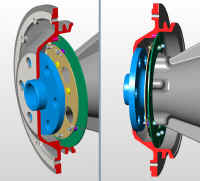 The direct crank sensor system provides complete redundancy
for single or dual Plasma CDI systems. This
crank sensor concept requires removal of the
flywheel for installation. Integrated
magnets in the flywheel are used to trigger miniature hall effect
sensors mounted on LSE's proprietary circuit board. This
sensor board is mounted to the crankcase via custom brackets for
Continental and Lycoming engines. The direct crank sensor system provides complete redundancy
for single or dual Plasma CDI systems. This
crank sensor concept requires removal of the
flywheel for installation. Integrated
magnets in the flywheel are used to trigger miniature hall effect
sensors mounted on LSE's proprietary circuit board. This
sensor board is mounted to the crankcase via custom brackets for
Continental and Lycoming engines.
6-cyl engines and engines
equipped for single drive dual magnetos use
the direct crank sensor assembly or the DCmini Sensor assembly.
Further
information on the direct crank sensor triggering mechanism may be
found on the Crank Sensor page.
ACCESSORY
CASE HALL EFFECT SENSOR MODULE
(4-CYL. LYCOMING &
LYCOMING TYPE) |
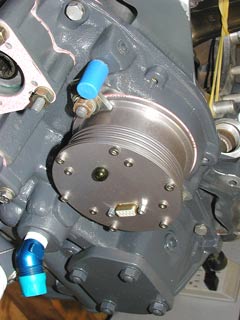
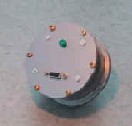
Light
Speed Engineering,
LLC's Plasma Capacitive Discharge
Ignition systems employ the latest hall sensor
technology to provide maximum reliability and easy
installation on Lycoming
engines.
The Hall Effect Sensor Module is installed
in place of the magneto and driven by the gear
from a non-impulse magneto.
A built in timing light makes the
installation easy and reliable.
The primary benefit of this triggering device is its straight
forward installation. Simply fit the module with a
non-impulse drive gear and mount it in your empty mag hole-- effectively
plug and play.
4-cyl Lycoming engines are capable of using either the
Hall Effect Module mounted in place of the magneto
or the direct crank sensor
assembly for crankshaft position information. This accessory
case mounted Hall Effect Module replaces single magnetos on Lycoming
(or Lycoming- type) engines.
Two
modules can be used to provide full trigger
redundancy with dual electronic ignition
installations.
* Non-impulse drive gears not included.
|